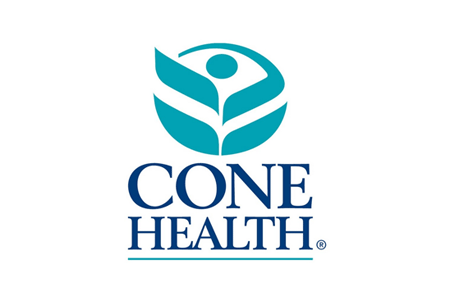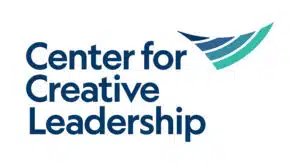- Case Study
- : Healthcare & Life Sciences
Healthcare Transformation Through Physician Leadership

| CLIENT: | Cone Health |
| LOCATION: | Headquartered in Greensboro, North Carolina; serves a multi-county region in the central part of the state. |
| SIZE: | More than 13,000 employees |
Client Profile & Challenge
Cone Health is a nonprofit health system that includes over 120 physician practices and outpatient facilities, as well as comprehensive inpatient services at 5 hospitals. Like all U.S. health systems, it faces pressure to control costs, improve patient outcomes, and increase the overall health of the communities it serves.
Cone’s leaders recognized that changing their organization would require engaging physicians. From day-to-day clinical decisions to their influence on hospital and clinic culture, physicians represent the deepest well of often-untapped potential for health system transformation.
Though they receive virtually no formal management training, physicians are de facto leaders from the start of their careers. They supervise nurses, therapists, and other clinicians and frequently collaborate with one another in the course of caring for patients.
The challenge: How to engage traditionally independent-minded physicians and train them to be collaborative, strategic leaders who take an active role in Cone’s ongoing efforts at transformation.

Solution
The Cone Health Physician Leadership Academy (PLA) is designed to strengthen physicians’ leadership skills and engage them more deeply in health system change. The PLA is an 11-month, 5-session program for cohorts of approximately 2 dozen doctors. To date, more than 200 doctors have gone through the experience at Cone.
The PLA seeks to help physicians strengthen their leadership competencies by incorporating 6 key elements: assessment and individual feedback; teamwork; working across boundaries; coaching; strategic partnering; and action learning projects.
8 KEY LEADERSHIP COMPETENCIES
- Setting and achieving goals
- Receiving feedback
- Giving feedback
- Working across organizational boundaries
- Learning through others
- Building and mending relationships
- Managing change
- Having self-insight, managing and developing self
Physicians meet together 5 times for classroom learning sessions (meeting virtually during the COVID-19 pandemic). They also receive executive coaching and work on small teams in action learning projects to solve real challenges.
Results
Before and after assessments show significant leadership improvements. Their peers, supervisors, and direct reports say participants of the PLA improve an average of 15.2% on the 8 critical competencies targeted in the program. Physicians rated their own improvement on these measures at an average of 21%.
Patients also see a difference. Patient satisfaction scores for most physicians who have gone through the program are higher than their peers who haven’t benefited from the training.
At a system leadership level, the PLA has been a valuable tool in helping Cone strengthen its
leadership ranks: 32% of PLA graduates are now in formal leadership positions within the system. When other informal positions, such as leadership roles within practices are considered, 67% have taken on leadership roles.
Impact on Inpatient Patient Satisfaction Scores
Increases recorded from program start in 2012 to 2020 in point values.
A chief medical information officer, a chief transformation officer, 3 chief medical officers, and the physicians who launched and managed Cone’s specialized COVID-19 hospital facility, are all products of the Physician Leadership Academy. In 2020, Cone received a BOLD (Best Organization in Leadership Development) award in part for their work on the PLA.
Each cohort of the PLA also takes on specific challenges to improve the quality of care and reduce costs through action learning projects. Small teams of physicians tackle several individual projects for each cohort.
In one case, for example, a PLA team developed a “Mobile Medicine Unit” — a 42-foot wheelchair-accessible customized motor coach, equipped with 2 exam rooms and a private screening room. The Mobile Medicine Unit makes medical care more accessible to underserved populations and is available to patients 6 and older, including those using employer insurance, Medicare, Medicaid, and the uninsured.
Healthcare systems can’t turn their nonphysician executives and managers into doctors. But the Physician Leadership Academy demonstrates that they can transform doctors into leaders with whom they can partner to transform healthcare.
Participants Say
“Physician engagement and leadership quotient allows Cone to better serve the community and promote positive health outcomes. Since the PLA has been in place, engagement among our physicians has grown.”
Mary Jo Cagle, MD
Chief Executive Officer, Cone Health
PLA Graduate
“The PLA provides avenues for professional and personal success that can act as a shield against burnout. There’s strong indication that we’ll see fewer incidences of burnout among PLA alumni.”
Matthew Manning, MD
Chief of Oncology, Cone Health, PLA Graduate
Partner With Us
At CCL, we bring over 50 years of experience partnering with top healthcare providers to achieve transformational change, organization wide. Our healthcare leadership development solutions are designed to provide maximum learning and growth for your healthcare leaders at the individual, team, and system level.
| What to Explore Next
| Related Solutions
Sign Up for Newsletters
Don’t miss a single insight! Get our latest cutting-edge, research-based leadership content sent directly to your inbox.






